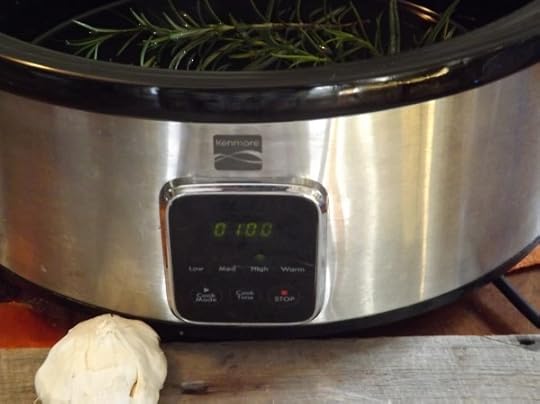A Rosemary Primer

Latin Name: Rosmarinus officinalis. Roughly translation: “dew of the sea.” It has earned this reputation by needing no water other than the humidity of the sea to thrive along coastal regions.
Other Common Names: Anthos
Interesting Historical Trivia: Rosemary has a long association around the globe with remembrance. Ancient Egyptians placed rosemary branches across the coffins, and this tradition continued into the era of Shakespeare. (From Hamlet: “There’s rosemary, that’s for remembrance.” From Romeo and Juliet: “Doth not rosemary and Romeo begin both with a letter?”) In the 16th century it was burned daily in hospitals to kill germs, and used as a symbol for fidelity during weddings.
Proven Scientific Uses: Rosemary is high in caffeic acid and rosmarinic acid; these compounds have been proven to have antioxidant effects and are being studied as potential therapies for cancer, liver toxicity and inflammatory conditions. Rosemary is also high in carnosic acid, which has been proven to protect the brain from stroke and neuro-degeneration.
Folk Remedies: Native cultures infused rosemary in oil and used it for various skin conditions, hair loss, and aromatherapy to eliminate stress, prevent hypertension and clear the sinuses. It’s considered a good volatile oil and can be added to hot water and used as a hair rinse for a clean scalp, boil a sprig and steam your face and clear your sinuses, throw sprigs in the corners of your pantry to discourage bugs. You can even boil a sprig in two cups of water and use it as an antiseptic cleaning solution. Some herbalists also believe that rosemary can help slow memory loss associated with alzheimers.
Common Culinary Uses: Roasted Chicken, pork, lamb, and potatoes.
Unusual Culinary Uses: Apple pie, Lemon Rosemary Cake, popcorn (see below.)
Can I grow it?: Rosemary is a perennial plant from zone 7-10, and can sometimes overwinter in zone 6. In zones 1-5, rosemary can either be replanted every year, or grown in pots and brought indoors to a sunny window over winter. Can be started either from seed or from starter plants. Requirements: Full sun, good drainage.
How do I store it? Fresh rosemary can be frozen for up to 2 months. Another great storage method is to prepare rosemary infused oil, which can be used when making French fries, popcorn, or sautéing vegetables.
Check out the slide show to learn how to make rosemary oil:







